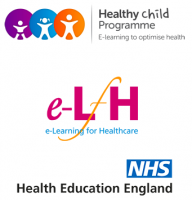Meeting Health Needs of School Age Child course for Medical Doctors



This session will explore the key messages about public health in the context of school health and new models of service delivery. In particular, it will focus on the World Health Organization’s definitions of public health and the study on Health Behaviours in School-aged Children (HSBC).
Learning objectives
By the end of this session you will be able to:
- Summarise information regarding public health and the causes of public health problems in the 21st century
- Summarise issues that are underlined in the Health Behaviours in School-aged Children (HBSC) study by the World Health Organization (WHO)
- Identify the knowledge and skills needed to work together for optimum public health outcomes for children and their families
- Choose the best environment for practice: hospital, clinic, school, classroom, home or wider community
- Evaluate the different methods of communication: face-to-face, email, mobile phone, text and letters to support the child, parents and school
This session uses self assessments that help you check what you have learnt. You do not have to use them and your answers are not seen by anyone else.
Before commencing this session you should read:
- Potter K, Wright J. Integrating the Children’s Public Health
- Workforce. In: Sines D, Fanning A, Potter K et al., eds. Community and Public Health Nursing. 5th edn. London: Wiley Blackwell, 2013:91-112
- Wright J. The School Health Team. Healthy School Child (411-002). DH e-Learning for Healthcare. 2014
- Completed HSC session: The School Health Team (411-002)
Jane Wright is a senior lecturer and course leader for Specialist Community Public Health Nursing at Buckinghamshire New University. She has a background in adult nursing and school nursing in Buckinghamshire. Jane has written a number of books and articles about school nursing practice, is on the editorial board of the British Journal of School Nursing and has been involved with the Department of Health School nurse Implementation Plan.


- Surgery | Common Surgical Conditions | General Sur...
- Posted By eIntegrity Healthcare e-Learning
- Posted Date: 2024-11-14
- Location:Online
- This session outlines the presentation, investigation and management of causes of dyspepsia.
- 02_07 General Surgery Dysphagia
- Posted By eIntegrity Healthcare e-Learning
- Posted Date: 2024-11-14
- Location:Online
- This session outlines important principles in the definition, causes, assessment and investigation of dysphagia, a significant symptom which warrants urgent evaluation.
- Surgery | Common Surgical Conditions | General Sur...
- Posted By eIntegrity Healthcare e-Learning
- Posted Date: 2024-11-14
- Location:Online
- This session outlines the aetiology, investigation, and management of common and serious conditions causing bleeding originating from the rectum and anus. It also revises the 2 week-wait referral guidelines for suspected lower GI cancer.
- Surgery | Common Surgical Conditions | General Sur...
- Posted By eIntegrity Healthcare e-Learning
- Posted Date: 2024-11-14
- Location:Online
- This session will describe the approach to the patient with suspected lower gastrointestinal haemorrhage including immediate management, investigation, aetiology and definitive treatment.
- Surgery | Common Surgical Conditions | General Sur...
- Posted By eIntegrity Healthcare e-Learning
- Posted Date: 2024-11-14
- Location:Online
- Upper gastro-intestinal bleeding is a common and sometimes life threatening problem. This session discusses the symptoms, causes, resuscitation, scoring and further management of these patients.






